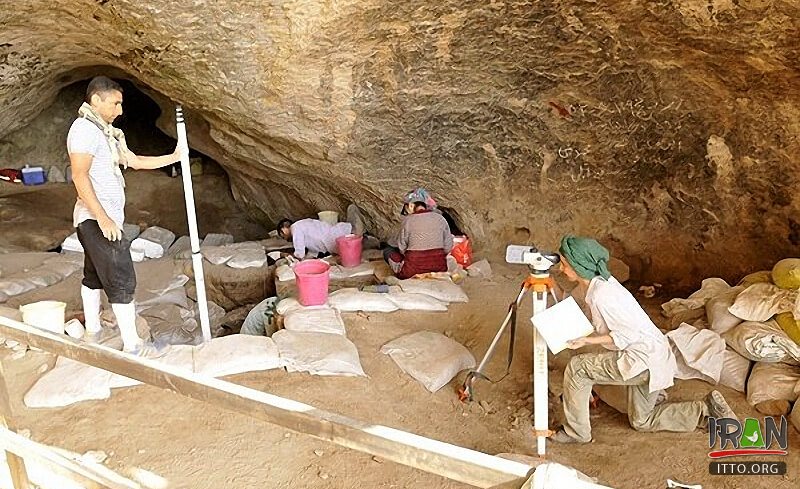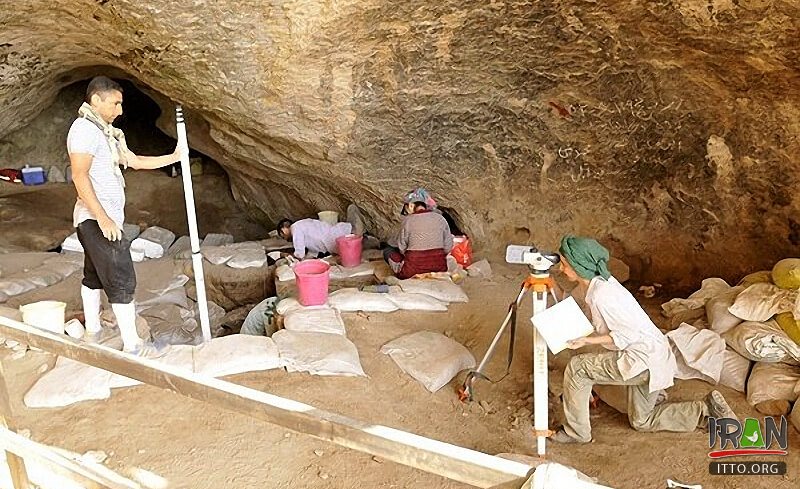Archaeologists have discovered remains of a horse, which they believe to be hunted by Neanderthals in a cave that is now situated in Qazvin (Ghazvin) province.
Senior archaeologist Hamed Vahdatinasab said on Saturday that the animal remains dates back to [some] 45,000 years, adding they have found evidence that suggests the horse was hunted by Neanderthals.
Supervised by the Research Institute of Cultural Heritage & Tourism, the survey is being carried out by a team of Iranian and French experts in Qal-e Kord Cave in Avaj county. It is scheduled to come to an end on July 22.
Last November, the first season of the joint Iran-France archeological exploration led to the discovery of over 6,000 cultural pieces in the area from two boreholes which were under study. It yielded bone remains of horse, deer, bear and many stone tools belonging to the Middle Paleolithic period (between 200,000 up to 40,000 years ago).
The provincial capital, which has the same name, is a major tourist destination with a wonderfully restored caravanserai-turned-arts precinct, some quirky museums and a handful of decent eating options.



